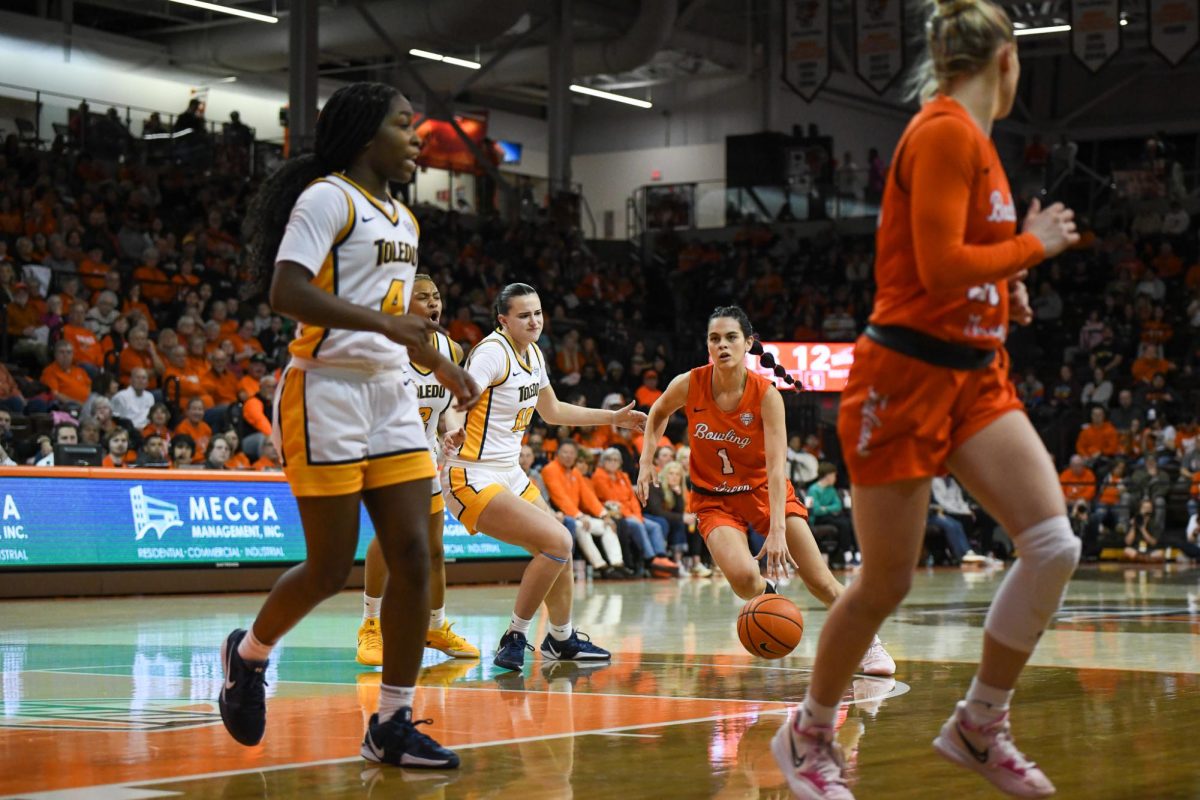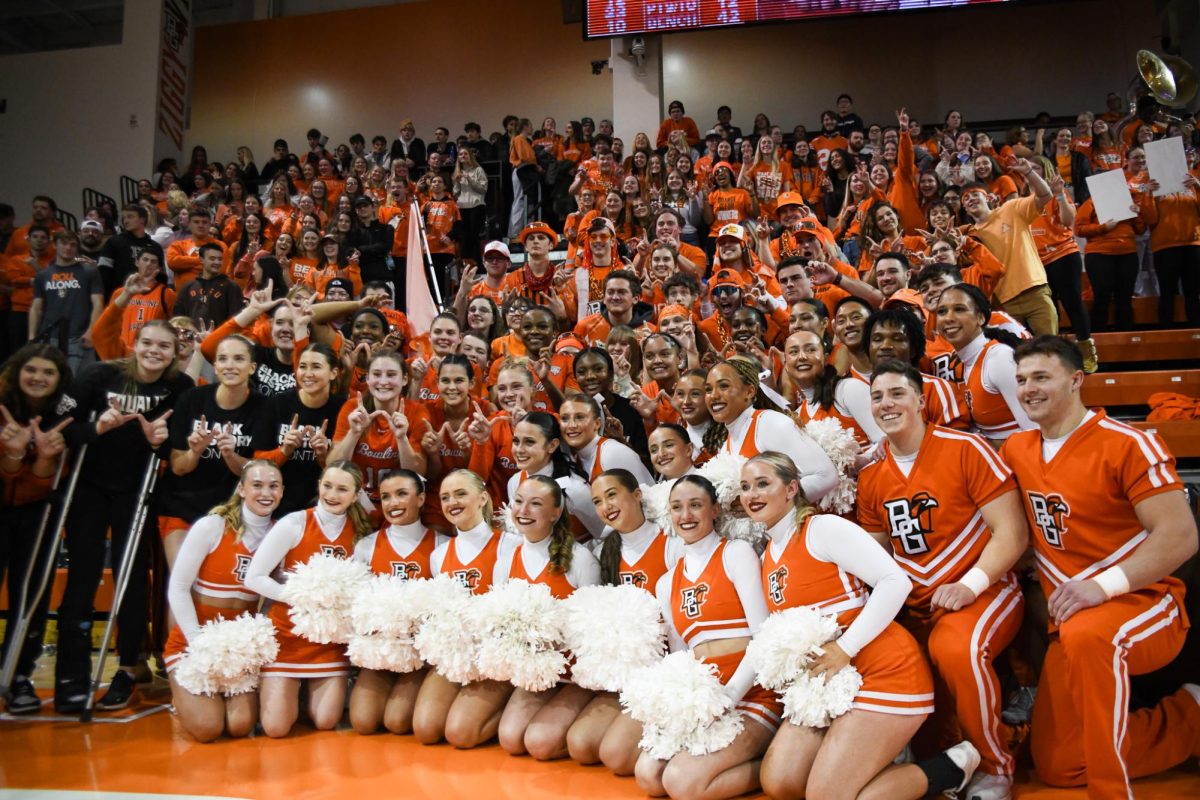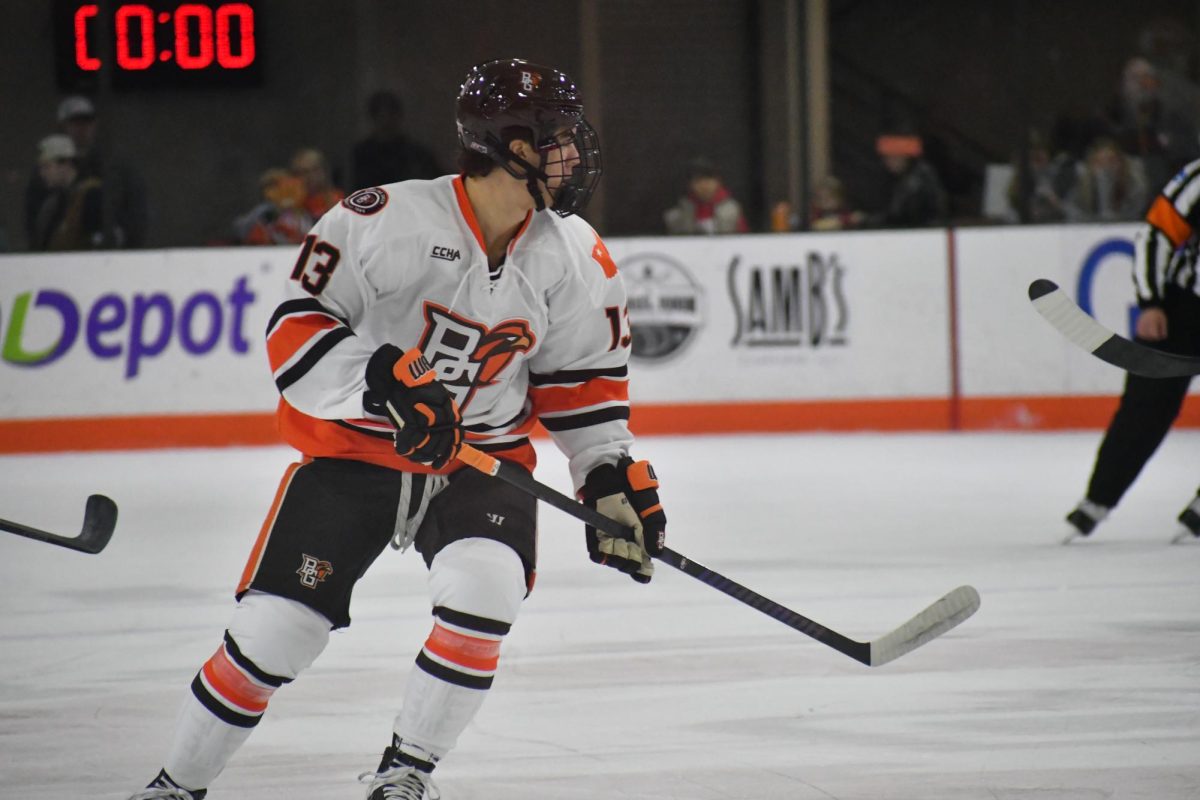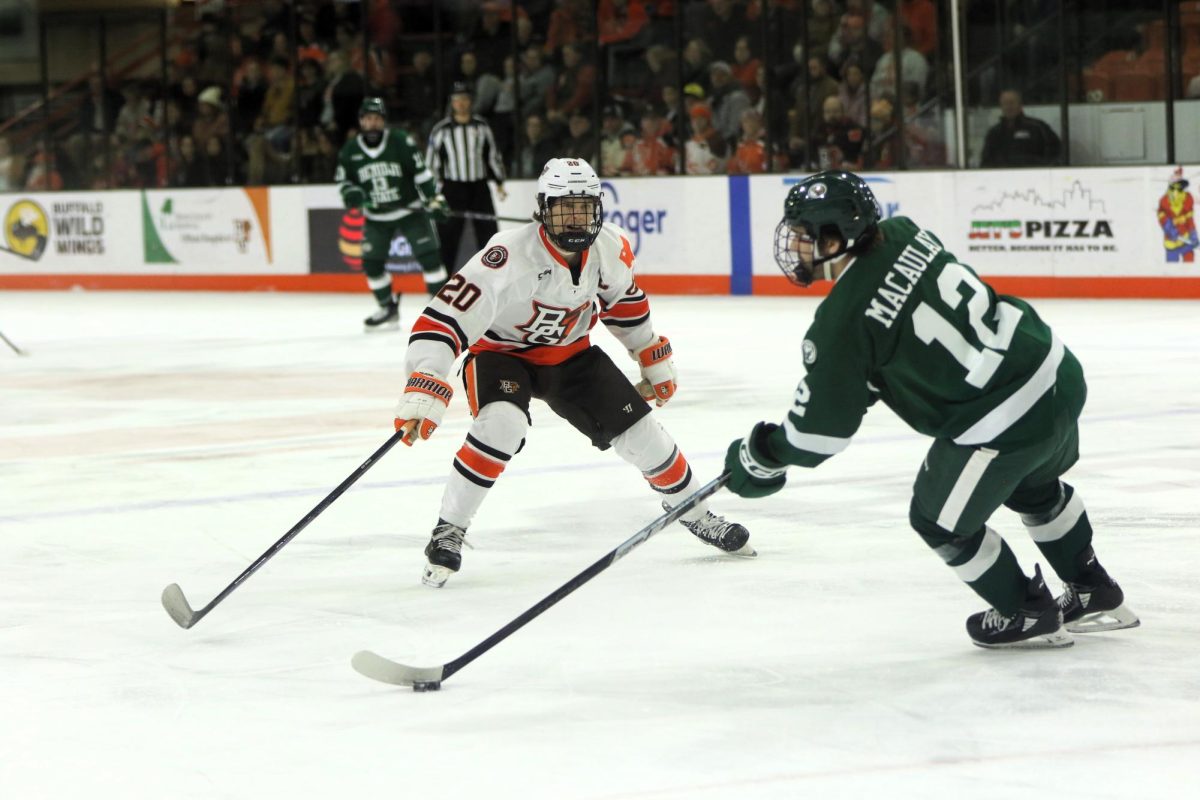The University’s athletic department has $23.7 million in expenses, the smallest in the MAC this year. The department continues to look for ways to be more efficient and use funds in the best way possible.
“Our budget has stayed relatively flat,” Athletic Director Bob Moosbrugger said. “We did ask our coaches to plan for a 5 percent cut in their budget.”
However, the department also faces the challenge of managing the current budget with rising expenses, which, according to USA Today, are increasing for schools across the board.
“Even though our revenue has stayed flat, our expenses are going up,” Moosbrugger said. “Housing went up 2 percent and then everything else from travel, that’s all going to go up. So while the allocation from the university has stayed flat, we knew we were going to have to cut some to keep up with the increase in expenses.”
The department also struggles with having a lower level of financial resources right now than other schools. Moosbrugger feels that they can bring in top level talent.
“(The budget) is still, unfortunately, the last in the Mid-American Conference. That’s not something that we go out and sell our recruits on, even though that’s our budget and it is what it is,” Moosbrugger said. “BG is a great community, and it’s a great college town, so it’s a good balance of everything that can still attract great student-athletes here, and we can win championships regardless of what that budget may be.”
The department also wants to continue to put a primary focus on scholarships going forward as well.
“I know our coaches still don’t feel that they’re budgeted the way they should be,” Moosbrugger said. “I agree with them. We need to allocate more to them, but if we don’t take care of our first priority, which is scholarships, we’re never going to get ahead.”
Moosbrugger also has some long-term plans for the university’s athletic programs.
“Ultimately, I would like to stabilize our finances,” Moosbrugger said. “That’s going to take our alumni to step up, and we’re reaching out to a lot of student-athlete alumni because the fact of the matter is the state is not providing the resources to the university like they once were.”
With all of the current challenges, the department also knows they will have to do their part to bring in as much funding as possible.
“While we have the lowest institutional support in the MAC, I don’t think that’s going to grow anytime soon,” Moosbrugger said “We have to go out as an external staff … as I told in our staff meetings. We’re all fundraisers, we’re all ticket sellers and we’re all NCAA compliance folks, so it’s on us to sell the product out into the community and get fans into our stands to help raise money for this department. That’s the only way we’re going to stabilize our finances.”
Looking from the perspective of a specific team, the Falcon hockey team faces challenges with longer travel distances between other teams in their conference and higher gameplay expenses. This led to a conversation about possibly removing the hockey program back in the 2009-10 season.
“The travel costs in the WCHA are definitely greater than they were in the CCHA,” Falcon hockey head coach Chris Bergeron said. “I think it makes it difficult. It puts a strain on the athletic department that the hockey team travels as much as we do, but that’s the league that we play in, and until someone tells us different, that’s what we’re doing.”
However, the team is used to the budget they have.
“It’s one of those things where we’ve been here eight years, so we understand what we have and what we don’t,” Bergeron said. “I don’t think we live extravagantly, but I don’t think our guys go without. Whether it be the way we travel, what we eat on the road, how we eat on the road, where we stay, our guys’ equipment, we’re a fully funded team in terms of NCAA allotment of scholarships, so we have a lot, and I believe that our guys think we have a lot.”
The team is also trying to do some things on their own to help cut costs.
“What we can do is try to stay closer to home non-conference,” Bergeron said. “We’re trying to stay closer non-conference, not only to have good teams in our building, but also so we don’t have to spend nights in a hotel, so we don’t have to pay for more travel. Yes, we have bus costs, but we try to cut down on food costs, so we’re trying to take some of that pressure off.”
With the budget standing at where it is, teams and the department are making the most with what they have and finding new ways to allocate as they go forward.







